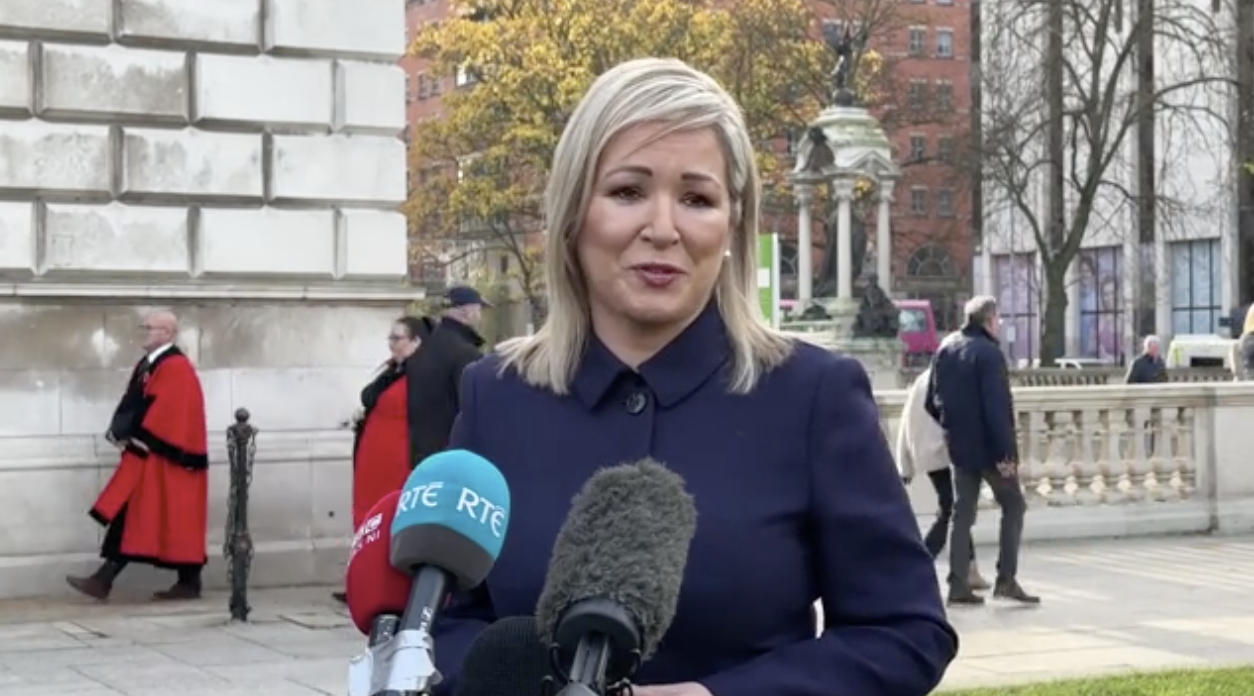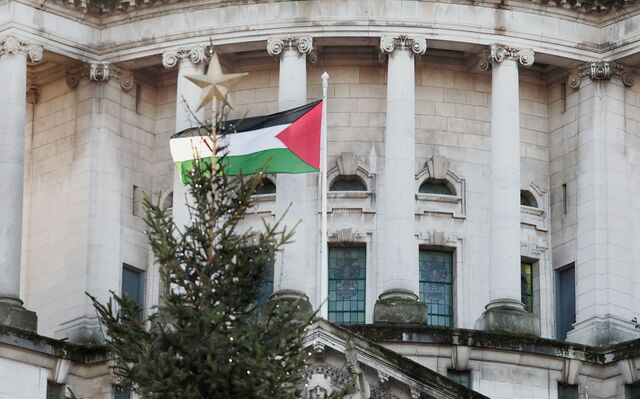ANOTHER year, another toxic round of media angst and recrimination over the issue of remembrance.
The first thing to be said is that despite the predictable dog-in-a-manger attitude of much of political unionism towards First Minister Michelle O’Neill’s appearance at the Cenotaph, her gesture will have played extremely well with that section of the pro-union community which believes that it is high time that grandstanding, self-pity and single-narrative moralising were set to the side right across the board and a little reality was injected into the issue. And that applies as much to those republicans – much smaller in number than the more sensationalist elements of the local media would have us believe – that viewed Ms O’Neill’s actions as a betrayal.
Quite simply, the question of remembrance is an unsolvable one. There is no accommodation that can be reached, no compromise that can be made that will take this monkey off our backs. Because people will not only remember who they want to remember and in the way they want to remember, they will take grave exception to those with the arrogance to tell them who, how and when they should remember. And with that very basic and utterly undeniable reality taken on board, all that can be done is for people of goodwill to continue to practice outreach and, crucially, to inject empathy and consideration into their personal and communal acts of remembrance. And in time those who long for a future beyond grievance and finger-pointing will triumph – hopefully by the spreading of the message of mutual respect, but if not, then by the attrition of the years. Because those who insist that remembrance can only be our way and no other are in a minority, and within that minority a majority is in the upper age range.
There can be no place, for instance, for ceremonies, marches, events – or whatever form the remembering takes – to take place in areas where they are not wanted, or at the very least tolerated. There should be no place for triumphalism or hatred. Whether it’s the British armed forces being remembered at Belfast City Hall (itself a concession in a shared city centre), loyalist paramilitaries being remembered on the Shankill or republican paramilitaries being remembered on the Falls, the watchword can only be appropriateness. And despite the annual attempts of significant elements within politics and the media to pick at the scab of the past, there are steady and definite advances being made.
As with contentious marches and parades, acts of remembrance that cause community division are small in number and dwindling with the passing of every year, without the overall number going down. That doesn’t make the headlines, but it’s the simple truth. In the general absence of conflict, the past may not heal itself – it very seldom does – but it will sort itself if enough people are willing to let it.
And there are more people out there keen for change than happy with a dying status quo.







